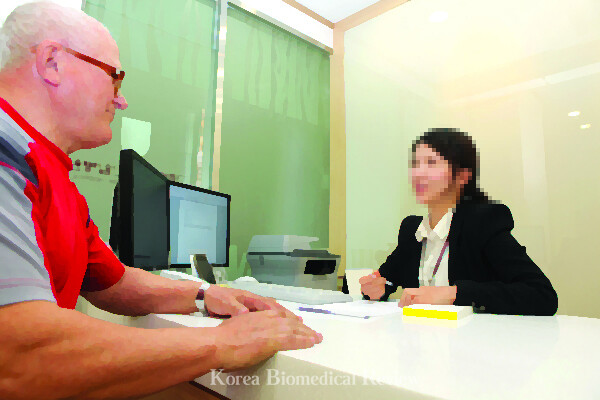The overall satisfaction of foreign patients with Korean medical services continued to receive a high grade in 2023.

According to the "2023 Foreign Patients' Experience and Satisfaction with Korean Medical Services" survey released by the Korea Health Industry Development Institute (KHIDI), the overall satisfaction of foreign patients with Korean medical services reached 90.2 points in 2023, an increase of 1.0 point from 2022's score of 89.2, maintaining a high level.
The survey, conducted among 1,500 foreign patients, revealed that Southeast Asians accounted for the largest proportion with 342 respondents (22.8 percent), followed by those from the U.S. and Canada (287 respondents), China (203 respondents), Mongolia (177 respondents), the Commonwealth of Independent States (CIS) (158 respondents), Russia (146 respondents), the Middle East (114 respondents), and Japan (73 respondents).
By nationality, Russian patients reported the highest satisfaction with 92.4 points, followed by CIS (92.1 points), Mongolia (91.5 points), China (90.7 points), the U.S. and Canada (90.2 points), Japan (89.6 points), Southeast Asia (88.9 points), and the Middle East (86.0 points).
Among the four key dimensions of satisfaction, the social responsibility dimension scored the highest at 91.2 points, followed by customer satisfaction (90.9 points), service quality (90 points), and discrepancy (88.7 points).
Compared to 2022, satisfaction with the service quality dimension saw the most significant increase of 1.6 points, followed by social responsibility (up 1.3 points), customer satisfaction (up 0.8 points), and discrepancy (up 0.2 points).
Among 33 specific evaluation items, interpreter and coordinator friendliness scored the highest with 93.4 points, followed by smooth interpretation services by staff (93.3 points), doctor's friendliness (91.6 points), and hospital environment comfort (91.5 points).
However, meal satisfaction scored the lowest at 82.7 points, marking a decrease of 1.1 points from the previous year, maintaining its position as the lowest-rated item.
Also, 97.4 percent of foreign patients expressed their willingness to recommend Korean medical services to others, up 2.8 percentage points from 2022.
Regarding the frequency of medical service utilization, 32.5% visited only once, while 30.5% visited four or more times, showing an increase in repeat visitors.
When choosing Korean medical services, 60.8 percent of foreign patients considered medical institutions or medical professionals as the most crucial factor. Among the factors influencing their choice of institution or professionals, medical technology" ranked the highest (28.9 percent), followed by recommendations from others (18.2 percent), medical equipment and facilities (16.7 percent), and convenient communication (9.3 percent).
The average total expenditure, including medical services, during their stay in Korea, was $8,911, with medical expenses accounting for 61.9 percent of the total. Compared to 2022, total expenditure increased by $2,390, and the proportion of medical costs rose by 6.1 percentage points.
However, the survey also showed that the awareness of the Medical Korea, which is a government-led brand to promote medical tourism to Korea, decreased by 11.3 percentage points to 27.6 percent and the influence of Korean cultural experiences on choosing medical services dropped by 8.4 percentage points to 41.3 percent.
Usage of the Medical Korea Information Center stood at 25.2%, with the most common methods being online (11.8 percent) and visits to the center in Jongno-gu (10.1 percent). However, the proportion of respondents who never used the service increased to 74.8 percent, up 16.3 percentage points from 2022.
Awareness of the Korea Accreditation Program for Hospitals Serving Foreign Patients (KAHF), which is a government certification on excellent hospitals and clinics so that foreign patients can receive higher-quality medical services, was 23.9 percent, down 9.2 percentage points from the previous year.
Still, 88.8 percent of patients who were aware of the program considered it when choosing a medical institution.
Related articles
- Foreigners, except Chinese nationals, contribute to surplus in Korea's health insurance finances
- Foreign patients gain better accessibility with Medical Korea Support Center's relocation to Seoul Station
- Yongin Severance Hospital opens international clinic for foreign patients
- Cosmetic surgery tourism hits record high in Korea, despite ongoing healthcare crisis
- KHIDI seeks companies for 2025 Global Expansion Consulting Program
- Korea to scrap VAT refund for foreign cosmetic surgery patients, sparking tourism backlash

